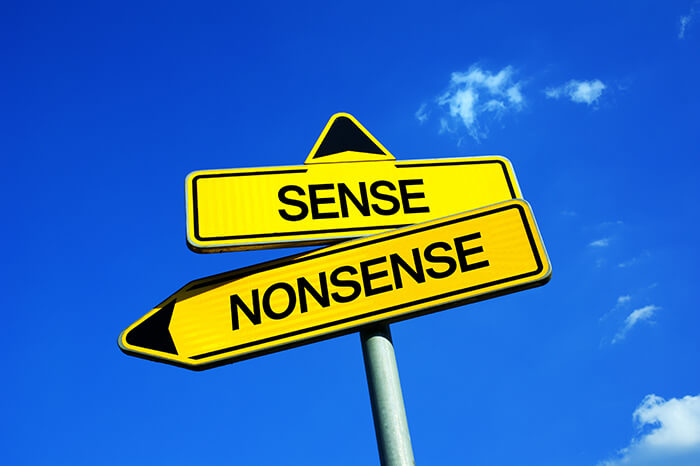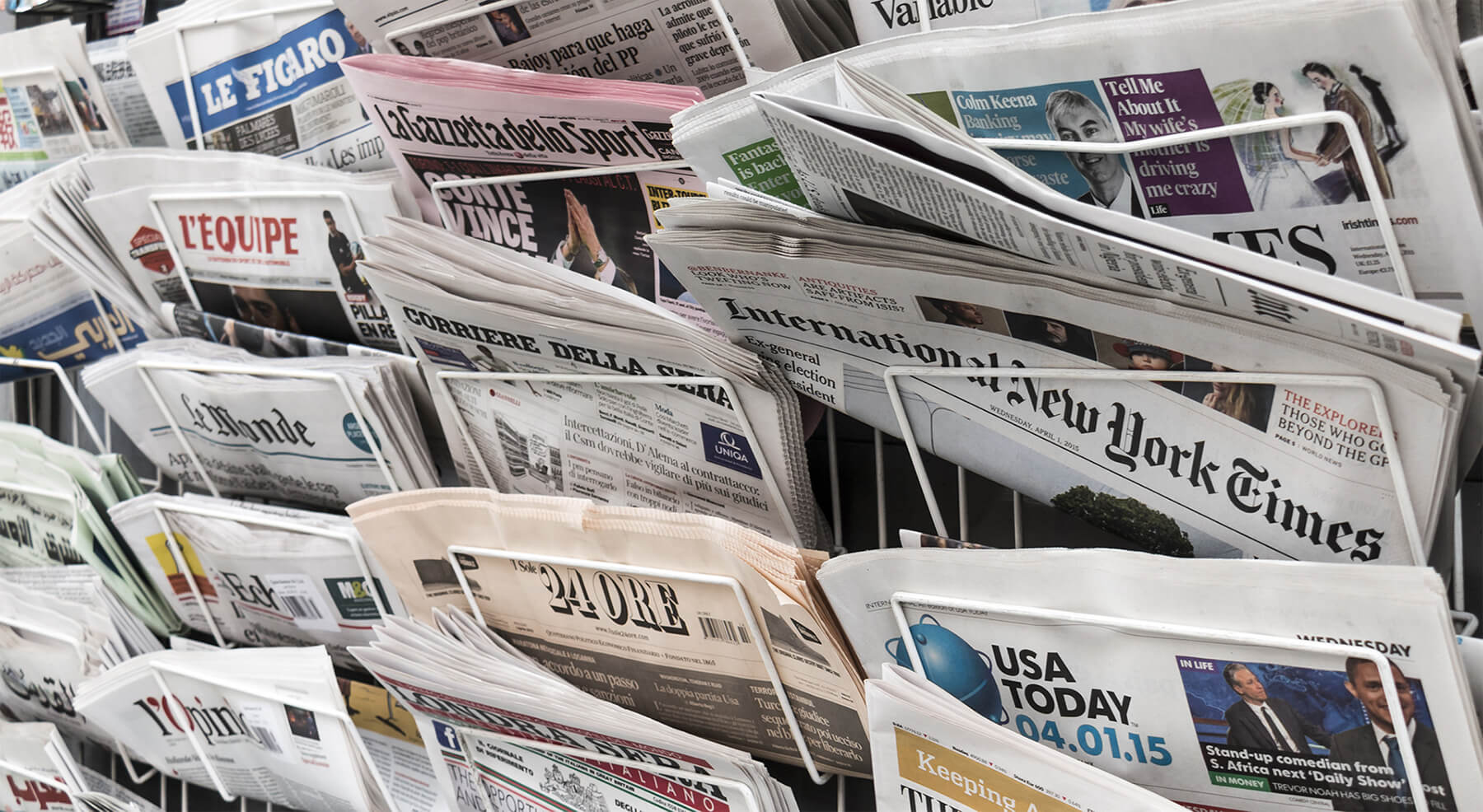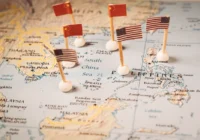For at least the past five years, The New York Times has put on display its total commitment to highlighting and exaggerating any story that appears, in any way, to implicate Russia in real or imaginary crimes against the United States, the Democratic party, CIA staff, members of prominent American political families or chosen strategic allies the State Department finds it convenient to influence, if not manipulate. Russia’s very real and very illegal invasion of Ukraine has brought about a monumental intensification of this commitment. We have witnessed an impressive multiplication of articles intended to buttress Ronald Reagan’s 40 year-old meme of “the evil empire.” It is an empire that used to be evil because it was a communist regime. Now it is evil simply because it is Russia.
Like one of Lockheed’s advanced radars (SPY-7), The Times has deployed its sensitive antennae not only to detect foerign threats but also to identify anything individual American citizens say that might somehow resemble assertions made by Russian officials. The Times commissioned a trio of writers — Paul Mozur, Steven Lee Myers and John Liu — to write an article on what the paper clearly believes to be a form of dangerous heresy, in which some of the individual heretics deserve to be named.
The title of the article — “China’s Echoes of Russia’s Alternate Reality Intensify Around the World” — identifies the enemy, a pair of powerful nations, and specifies the crime. But the authors, in their investigative zeal that recalls the McCarthy era, also want their readers to understand that there are American accomplices in the deception who must be shamed and branded for deviating from the holy truth fed to The Times by the US State Department.
Complaining more generally about a “group of internet celebrities, pundits and influencers,” the three reporters focus on an investigative reporter known for his commitment to exposing flaws and even crimes in the recent history of US foreign policy. “One of them, Benjamin Norton, is a journalist who claimed that a coup sponsored by the United States government took place in Ukraine in 2014 and that U.S. officials had installed the leaders of the current Ukrainian government.” Times readers will immediately understand that Norton’s claim cannot be true for the simple reason that, as maintained by all media now reporting on the “unprovoked war” launched on February 24, 2022, there was no history that preceded that event.
Norton’s guilt is sealed in the following sentence: “He first explained the conspiracy theory on RT, although it was later picked up by Chinese state media and tweeted by accounts like Frontline.”
Today’s Weekly Devil’s Dictionary definition:
Conspiracy theory:
- Any set of historical facts authoritative publications, such as The New York Times, deem inconsistent with the official unquestioned narrative provided to the journal by authorities in whose honesty and sincerity the journalists are instructed to have unassailable faith.
- The thesis developed in a text appearing in The New York Times authored by three or more journalists
Contextual note
The Times authors are careful to mention that Norton delivered this analysis on RT, a channel broadcasting in the US produced by independent American news professionals but funded by the Russian government. Because of the Kremlin’s funding, Times readers will immediately understand this to mean that Norton’s discourse was scripted by Vladimir Putin himself. If, moreover, it was “picked up by Chinese state media” as they claim, that surely means it was edited by Xi Jinping. The noble Times trio of writers has identified a subtly complicit trio of international criminals: Vladimir Putin (Moscow) and Xi Jinping (Beijing) and Ben Norton (an American residing in Nicaragua).
The key words in the title of the article are carefully chosen: China, Echoes, Russia, alternate reality, intensify, and “around the World.” The title seeks to inspire fear. It relies on associations that have been present in US culture for the better part of a century in the form of political paranoia. This is aggravated by the belief that China and Russia are not just enemies but symbols of every idea that challenges US identity. What either China or Russia wants separately is bad enough, but if one “echoes” the other while at the same time “intensifying” the “alternate reality,” the threat must be seen as positively evil. Worse, it appears to be omnipresent thanks to the further affirmation that, like the COVID pandemic, it is now found “around the world.” The title of the article alone is an exercise in conspiracy theory.
Conspiracy theories are meant by their promoters to sound sinister, but to a rational listener they often appear comic. QAnon inspired indignation and pity but never fear in those who understood its delusional claims. Its absurdity was too patent. One could only laugh at its outlandish imaginings. To anyone curious enough to consult any of numerous available serious sources concerning Ukraine’s recent history, the Times authors’ claim that Norton’s account is a conspiracy theory is literally laughable, in the same way that QAnon is laughable. The difference is that QAnon never tried to hide behind the status of a newspaper of record.

But should one laugh or cry at the wilful ignorance of three journalists conspiring together? Norton’s incriminating discourse occurred on the Russian state funded channel, RT, in an open interview with the “serious” satirical comic, Lee Camp. What he recounted was quite simply factual commentary. He has consistently made the same points in places where Putin is not the paymaster. So have many American geopolitical experts, including specialists of international affairs such as Michael J. Brenner or John Mearsheimer and George Friedman, the latter two prominent conservative defenders of US hegemony. All of which proves one thing: that discourse disseminated on an outlet supposed to be biased and governed by the enemy may be true (Norton on RT) and discourse published in a paper of record supposedly committed to the objective reporting facts may be false (the three authors at The Times).
In other words, when a respectable newspaper’s article specifically lamenting other people’s propaganda reveals itself to be a far more shameless example of propaganda than the examples it criticizes, crying may well be a far more appropriate reaction than laughing.
Historical note
In the history of The Times’ years-long campaign to blame Russia for every political inconvenience experienced in the US, the patience shown by the paper’s readers may seem just as inexplicable as the complacency of a well-paid editorial staff content with endlessly repeating the same misleading narrative and applying it to everything that moves. The Russiagate campaign that began in 2016 spawned a mountain of hype that built to a paroxysm around the Mueller report, whose inconclusive finale should have put to bed the very idea of blaming Donald Trump’s victory on Russia. In private, executive editor Dean Baquet confessed as much when, addressing the editorial staff, he admitted, “We’re a little tiny bit flat-footed. I mean, that’s what happens when a story looks a certain way for two years. Right?”
That was in 2019, but even after acknowledging that the story no longer looked that “certain way”, The Times continued to assign every scandal, whether caused by Cuban crickets (Havana Syndrome) or Hunter Biden, to the Russians. The newspaper quietly stopped making such accusations long after their source, the intelligence community, began hinting that there was no substance to them. More than a year ago the CIA internally renamed Havana Syndrome “Anomalous Health Incidents.” And it was only this past January that the CIA admitted, after six years of suspecting Russia, that there was no reason to believe the incidents were provoked by a foreign attack. In its latest post on the subject, The Times nevertheless still took the trouble to say that some professionals (could they be conspiracy theorists?) found that thesis of Russian culpability “probable.”
For The Times, the Hunter Biden laptop story was “Russian disinformation” until, more than a year later, it was acknowledged to be authentic. But even then, its contents were deemed to be of no concern to readers of The Times or Washington Post. Megan McArdle at the Post insisted on setting the record straight by daring to write about the Post’s erroneous take in some detail. In so doing she was careful to call it a “a wee disinformation problem of our own.” She ends by absolving her entire corporate media sector, concluding that “some right-wing media have gone much further with crazy election conspiracies than any mainstream outlet ever did with Russophobia.” The disinformation of good media will always be “wee” in comparison to the bad media.
The Times and The Post are not unique in their persistence to blame Russia for everything bad that happens and their alacrity to suspect anyone who fails to adhere to their orthodoxy of being either a Russian agent (e.g. Tulsi Gabbard) or a conspiracy theorist (e.g. Ben Norton). All the corporate media in the US, as McArdle seems to admit, have fallen into line.

Not all contrary voices have been silenced. They tend to migrate to platforms such as Substack, Patreon and Rumble . Tolerating them allows the powerful corporate media to proclaim that the noble ideal of freedom of expression still reigns, even at a time when a war in a distant nation in Eastern Europe provides a new “freedom fries” opportunity to cancel anyone who deviates from orthodoxy and has a chance of being listened to. In recent weeks, we have witnessed the active censorship of some of the nation’s most vociferous and well-informed independent voices. Whether it’s former Times journalist and Pulitzer prize winner Chris Hedges, former Marine intelligence officer and UN weapons inspector Scott Ritter, or even more obviously, Julian Assange, freedom of expression is being trampled if not effectively suppressed. Short of censorship, vilifying journalists such as Ben Norton ensures that they will be branded as dangerous and excluded from respectable platforms.
Even Elon Musk, who publicly supports the kind of militaristic coup the US engineered in Ukraine in 2013-14, claims his bid to acquire Twitter aims at reestablishing freedom of expression. It was Twitter that suspended Scott Ritter’s account twice in recent weeks for contradicting the White House’s account of the Bucha massacre. Interviewed about the Twitter suspension, Ritter gives his account of the meaning of free expression. “When you’re engaged in complicated issues,” he explains, “it’s not about being right. It’s about being motivated to promote the pursuit of truth.”
What was the motivation of the trio of Times writers who accused Ben Norton of promoting a conspiracy theory? Quite simply, the interest of their corporate masters, who appear guided by other considerations than promoting “the pursuit of truth.”
*[In the age of Oscar Wilde and Mark Twain, another American wit, the journalist Ambrose Bierce, produced a series of satirical definitions of commonly used terms, throwing light on their hidden meanings in real discourse. Bierce eventually collected and published them as a book, The Devil’s Dictionary, in 1911. We have shamelessly appropriated his title in the interest of continuing his wholesome pedagogical effort to enlighten generations of readers of the news. Read more of The Fair Observer Devil’s Dictionary.]
The views expressed in this article are the author’s own and do not necessarily reflect Fair Observer’s editorial policy.
Support Fair Observer
We rely on your support for our independence, diversity and quality.
For more than 10 years, Fair Observer has been free, fair and independent. No billionaire owns us, no advertisers control us. We are a reader-supported nonprofit. Unlike many other publications, we keep our content free for readers regardless of where they live or whether they can afford to pay. We have no paywalls and no ads.
In the post-truth era of fake news, echo chambers and filter bubbles, we publish a plurality of perspectives from around the world. Anyone can publish with us, but everyone goes through a rigorous editorial process. So, you get fact-checked, well-reasoned content instead of noise.
We publish 2,500+ voices from 90+ countries. We also conduct education and training programs
on subjects ranging from digital media and journalism to writing and critical thinking. This
doesn’t come cheap. Servers, editors, trainers and web developers cost
money.
Please consider supporting us on a regular basis as a recurring donor or a
sustaining member.
Will you support FO’s journalism?
We rely on your support for our independence, diversity and quality.







Comment